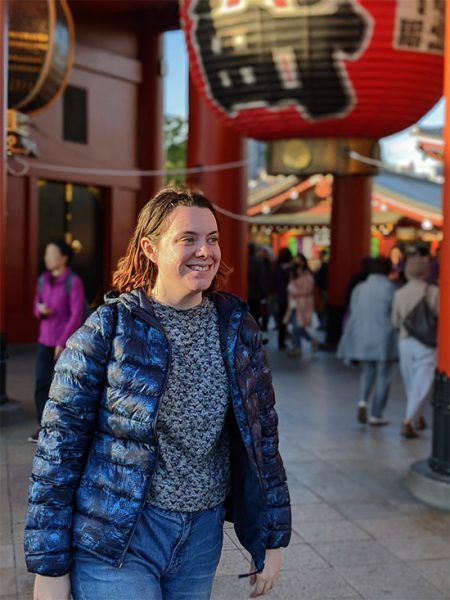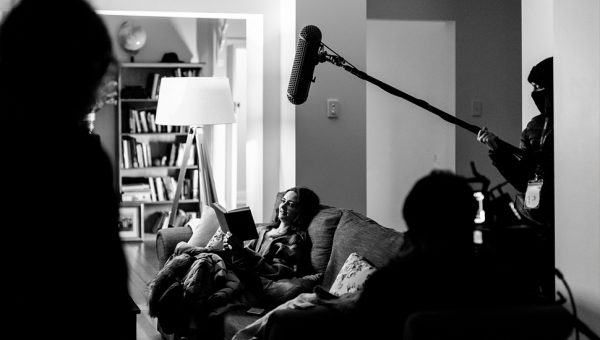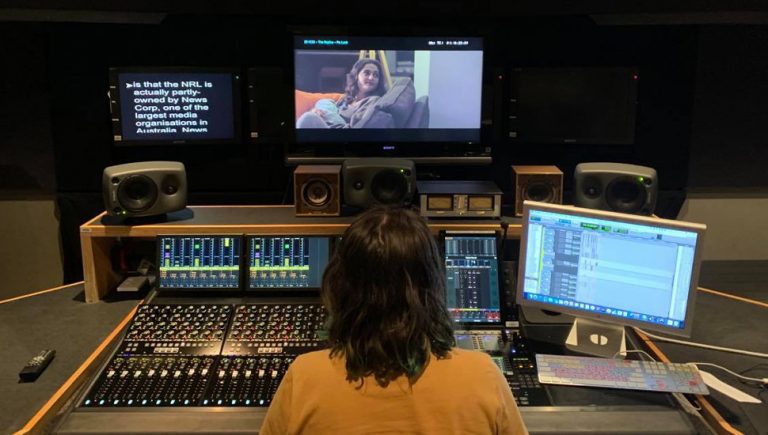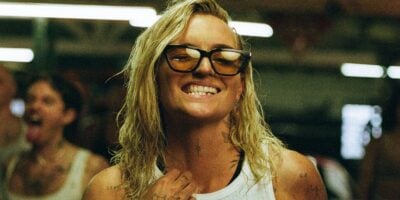Chloe Turner graduated from the Australian Film Television and Radio School’s (AFTRS) Master of Arts Screen: Sound program in the early months of 2021. She’s since been working as a Foley recordist and editor at Tracks Post Production, a boutique post production studio located on Sydney’s North Shore.
Turner completed a bachelor’s degree in film production at the Queensland University of Technology in 2017. She was freelancing in the screen industry prior to applying for AFTRS, working as a sound designer and recordist on a range of short film projects.
“I was just doing small projects here and there, like indie short films, but I didn’t really feel like I had the confidence to go headfirst into the industry,” she says.
After speaking to some of her QUT tutors, Turner was encouraged to apply for the Master of Arts Screen: Sound at AFTRS. “To be honest, I didn’t really think I was going to get in,” she says.
Headquartered in a purpose-built facility in Sydney’s Moore Park, AFTRS is one of the most esteemed screen and broadcast schools in the world. To maintain this standard, masters applicants must satisfy certain eligibility requirements. Despite her apprehension, Turner’s undergraduate degree and practical industry experience made her an ideal candidate.
“In my cohort, there were four sound people,” says Turner, who started her two-year degree in 2019. “You have to have some kind of knowledge—they’re not teaching you the very basics like, ‘This is Pro Tools and this is how you set up a session.’”
AFTRS’ Master of Arts Screen program is delivered across ten disciplines. Along with sound, the school offers masters courses in directing, producing, editing, cinematography, documentary, animation, music, production design and screenwriting.
Love Music?
Get your daily dose of metal, rock, indie, pop, and everything else in between.

It’s a practice-based learning environment, with the ten disciplines entwining throughout the period of study—something that’s especially beneficial for sound students. “There’s usually more directors and producers than sound students, so you do get the choice to work on things that align with what you want to do,” says Turner.
The concomitant delivery of ten different disciplines means AFTRS students are challenged to branch out from their pre-existing areas of interest. “I worked on a short musical, but then I also worked on a really heavy drama, which are two very different approaches,” says Turner.
“I had a lot of chances to work on my sound skills and work on both the project management side of managing my Pro Tools sessions and things like that, but also the creative side of it,” she says.
Studying at AFTRS gave Turner an enormous confidence boost, which led her to pursue the role at Tracks, as well as an upcoming gig at Australia’s largest post-production company, Soundfirm. In her current role, she’s working as a Foley recordist and editor on Channel 7’s Home and Away.
So what exactly is Foley? “Foley is a type of sound effect that has anything to do with what the characters are doing,” says Turner. “So, like picking up a glass, putting glasses down, sitting down, standing up, footsteps, putting clothes on and off, those kinds of sound effects.”
And what distinguishes the Foley department from the sound effects department? “If there is a storm, for example, that’ll be a sound effects job,” says Turner. “Clothes being put on and off, for example, it’s going to be really hard to find that in a sound effects library to match exactly with what’s on screen.”

Led by AFTRS’ head of sound, Stephen Murphy—who’s also the President of the Australian Screen Sound Guild—the Master of Arts Screen: Sound underlines the importance of sound for driving narratives and building immersive story worlds. Such emphasis has come in handy for Turner since she started at Tracks.
“Even in the Foley where it’s very basic stuff like picking glasses up, it’s still all about, well what’s the most important part of this scene that we need to make a sound for? What’s driving the story along? What do we have to focus on?” she says.
Turner went straight from finishing her masters to working on Home and Away, but she’s not ready to settle just yet. She has a particular interest in projects that give voice to people who’ve traditionally been silenced and marginalised, touching on themes of immigration, domestic abuse, and mental illness.
“AFTRS gave me the opportunity to explore more of those themes with my sound, especially because my research was looking at immersive sound and creating believable worlds,” she says. “AFTRS solidifies the values you want to have going into the industry, which I think is really important.”
Along with solidifying her values, AFTRS’ diverse, hands-on learning approach helped Turner to refine her professional aspirations. “I now know that I want to work as a Foley artist, editor or recordist – anything to do with Foley,” she says. “It adds so much oomph to a scene, so much life to a scene and characters, just because it’s so personalised.”
In that sense, fewer than six months after graduating from AFTRS, Chloe Turner has landed on her feet.
To find out more about the AFTRS’ Master of Arts Screen: Sound, register for the Postgraduate Information Week (12-16 July) here


































